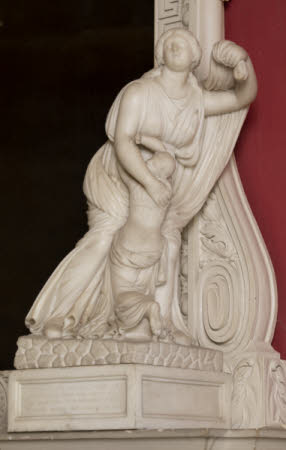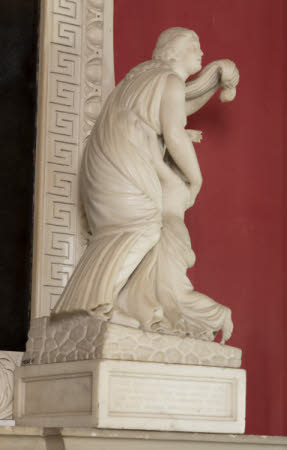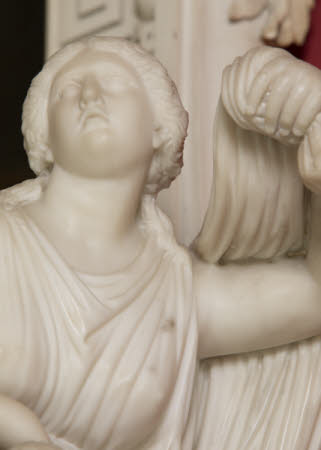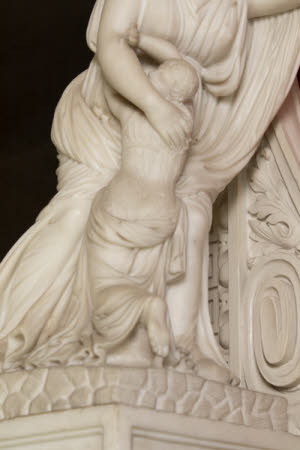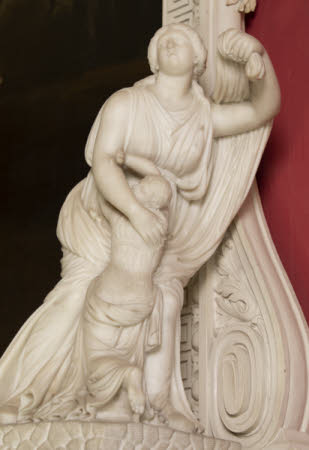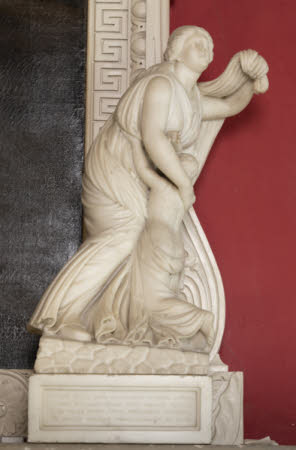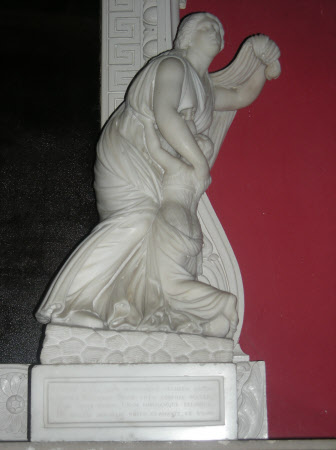The Niobe Group (Niobe with her Youngest Daughter)
Italian School
Category
Art / Sculpture
Date
1770 - 1799
Materials
Marble
Measurements
600 mm (Height)
Place of origin
Italy
Order this imageCollection
Stourhead, Wiltshire
NT 732934.1.1
Summary
Marble sculpture, The Niobe Group (Niobe and her Youngest Daughter), Italian School, late 18th century. After Roman 2nd century AD after Greek original. One of three marble statuettes after the antique Niobe figures. Niobe sheltering one of her youngest daughter. The group along with The Wrestlers was discovered in a vigna belonging to Tommasini de Gallese family near Porta San Giovanni, Rome in 1583 and purchased by Cardinal Ferdinando de' Medici from the Varese family. The sculptures were restored and displayed in the Villa Medici in Rome and plaster casts were sent to Florence in 1588. Prints of the statues were published in 1594. They were removed to Livorno in 1770 and later sent to Florence in the same year. By 1781 they were on display in the Uffizi. Niobe, Queen of Thebes, had seven sons and seven daughters and thought she was more fit to be worshipped than the goddess Latona (Leto) who only had two children, Apollo and Diana. The goddess commanded her children to slaughter those of Niobe, who wept until she turned to stone. The story is related in the Roman poet Ovid's Metamorphoses VI:144-312.
Makers and roles
Italian School, sculptor
References
Haskell and Penny 1981: Francis Haskell and Nicholas Penny, Taste and the Antique, The Lure of Classical Sculpture 1500 - 1900, New Haven and London, 1981, 66, fig. 143
